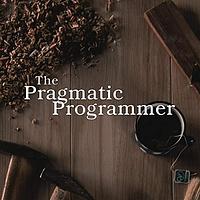Take a photo of a barcode or cover
226 reviews for:
The Pragmatic Programmer: 20th Anniversary Edition, 2nd Edition
David Thomas, Andrew Hunt
226 reviews for:
The Pragmatic Programmer: 20th Anniversary Edition, 2nd Edition
David Thomas, Andrew Hunt
Don't be put off by the examples using older technologies. There are useful lessons for any software engineer in this book.
Good read, but dated in some approaches but alot of good advice that is still relevant for a programmer right now.
Useful advice for the beginning programmer, and (I suppose) for someone who's been doing it for a while as well. I've scheduled in an opportunity to review some of the parts that went over my head in a few months from now.
This is a book best read at a few key moments: when first beginning programming, when starting on a professional career, when you begin to consider yourself senior, and then reviewing the bullets every couple years after that. I'm not really sure where I fall if you were being a pragmatic programmer was scaled. What I do know is that over the years, I have come to believe and practice many of the things suggested in the book.
The book describes the importance of estimation. This is definitely something I've struggled with, especially when working with a waterfall SDLC. One of the ways to address this is to continuously refine the estimate as you complete work and discover new problems. Especially in my early career and often working as a 1-man team, I didn't do this and suffered for it.
Another important overall point the book makes is about improving your crafts through learning and tooling. This is often something I ask about during interviews and a great positive indicator of the type of developer I enjoy working with.
The book describes the importance of estimation. This is definitely something I've struggled with, especially when working with a waterfall SDLC. One of the ways to address this is to continuously refine the estimate as you complete work and discover new problems. Especially in my early career and often working as a 1-man team, I didn't do this and suffered for it.
Another important overall point the book makes is about improving your crafts through learning and tooling. This is often something I ask about during interviews and a great positive indicator of the type of developer I enjoy working with.
hopeful
I just finished rereading Pragmatic Programmer. It's still full of great tips, and it was also interesting to recognize how far we've come since I read the book for the first time.



